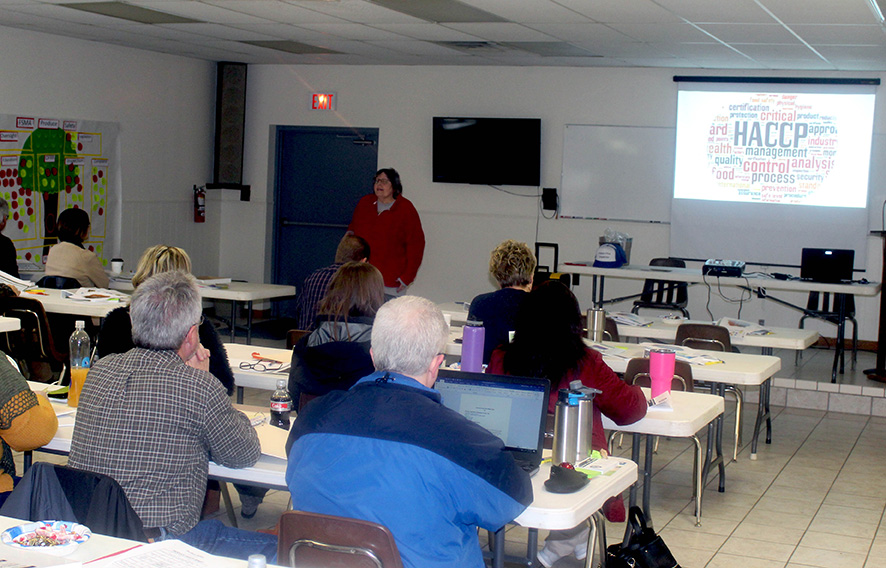Food safety laws have undergone major updates in recent years as a result of continuing serious food-borne illness outbreaks. The Food Safety Modernization Act (FSMA), which became effective in 2011 and is being implemented nationwide, brings nearly everyone who grows or manufactures food under its regulatory umbrella. Even though some small companies will be exempt from many of the regulations, it is still in their best interest to provide the safest food products possible - or risk the wrath of sick former customers.
WVDA offers a wide variety of deeply discounted courses that take food producers and manufacturers from zero to expert including Good Handling Practices – Good Agricultural Practices (GHP-GAP), Good Manufacturing Practices (GMP), Hazard Analysis and Critical Control Points (HACCP), Better Process Control, Writing Your Food Safety Plan workshop and Product Recalls.
 Better Process Control School
Better Process Control School
This course fulfills the requirements set forth in Title 21, Part 114 of the Federal Food Code. The Code states: “All plant personnel involved in acidification, pH control, heat treatment, or other critical factors of the operation shall be under the operating supervision of a person who has attended a school approved by the Commissioner for giving instruction in food handling techniques, food protection principles, personal hygiene, plant sanitation practices, pH controls, and critical factors in the acidification…” Successful participants will receive a certificate of completion. Tests are administered after each section.
GHP/GAP
GHP/GAP are the acronyms used for Good Handling Practices and Good Agricultural Practices. Participants in this class receive information on the importance of good record keeping, microbiological issues in handling and harvesting fresh produce, and appropriate storage methods. The curriculum used for this class is from Cornell University and is recognized by USDA as the leading curriculum. A certificate of completion is presented after the class. Completion of this class is a requirement to be able have a GAP audit.
Good Manufacturing Practices
Good Manufacturing Practices training shows food manufacturers how to manage their people, premises, processes, products and paperwork in a way to protect consumers from potentially harmful contamination.
HAACP
HACCP is an acronym for Hazard Analysis Critical Control Point, a logical system for safe food handling that can be used throughout the food chain from initial production to final consumption. It targets the critical operations in production, processing, storage, and preparation which determine whether the food will be ultimately be safe to consume. Measures are taken to eliminate, reduce, or prevent any potential hazards. Currently, this training is mandatory for meat, seafood, and juice production, but with the pending implementation of Section 103 of the FDA Food Safety Modernization Act (FSMA), food facilities will be required to (1) evaluate the hazards that could affect foods manufactured, processed, packed or held by such facility; (2) identify and implement preventative controls; (3) monitor the performance of those controls; (4) establish procedures for corrective actions should preventative controls fail; and (5) maintain records for such monitoring.
Writing Your Food Safety Plan
Writing Your Food Safety Plan Training shows how food manufactureres how to develop a comprehensive written plan that covers all facets of safe food production, including personnel, sanitary facilities and operations, defect action levels and safe holding and distribution.
